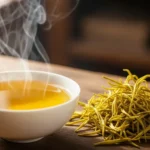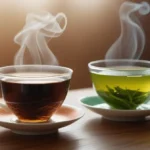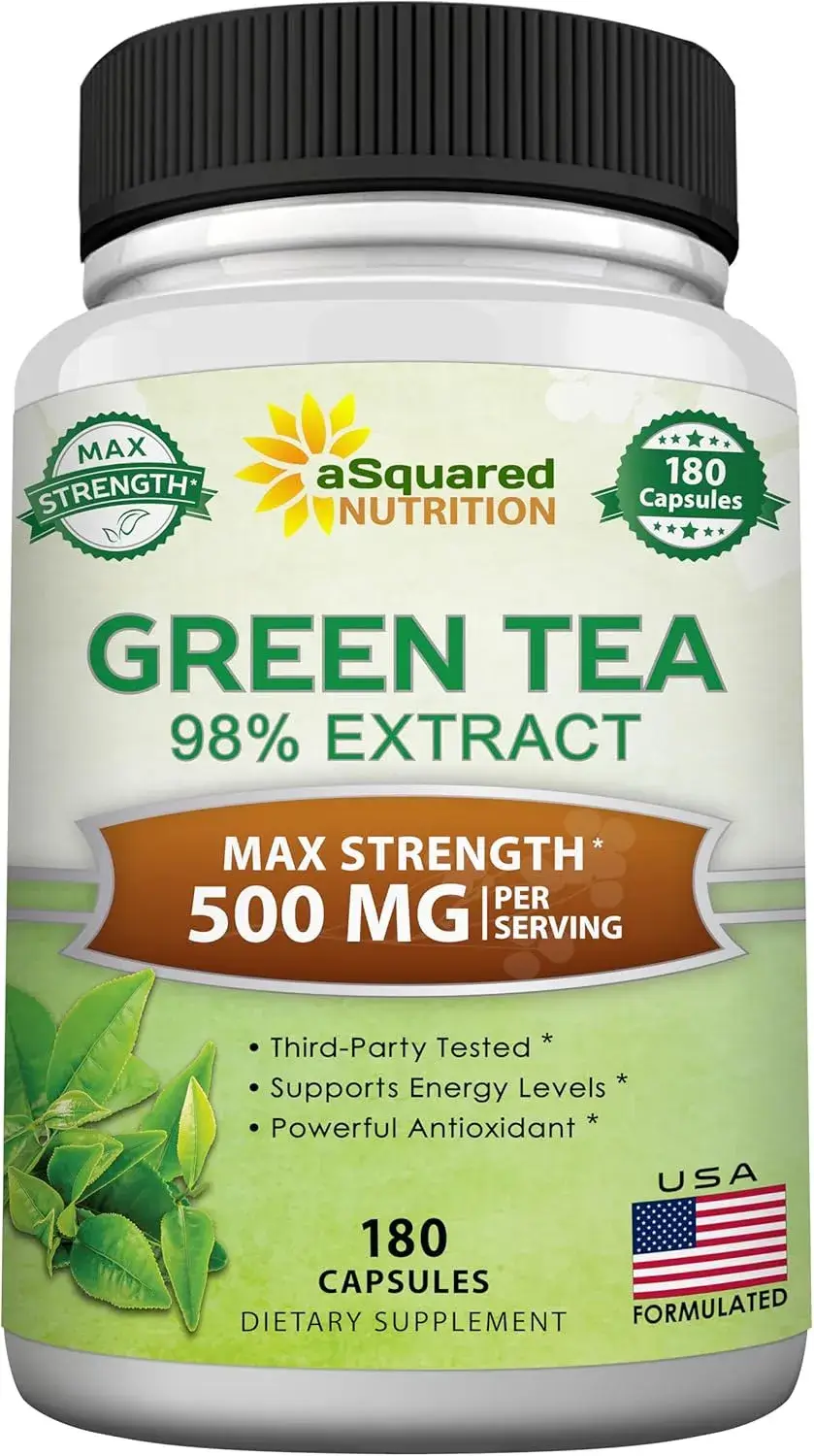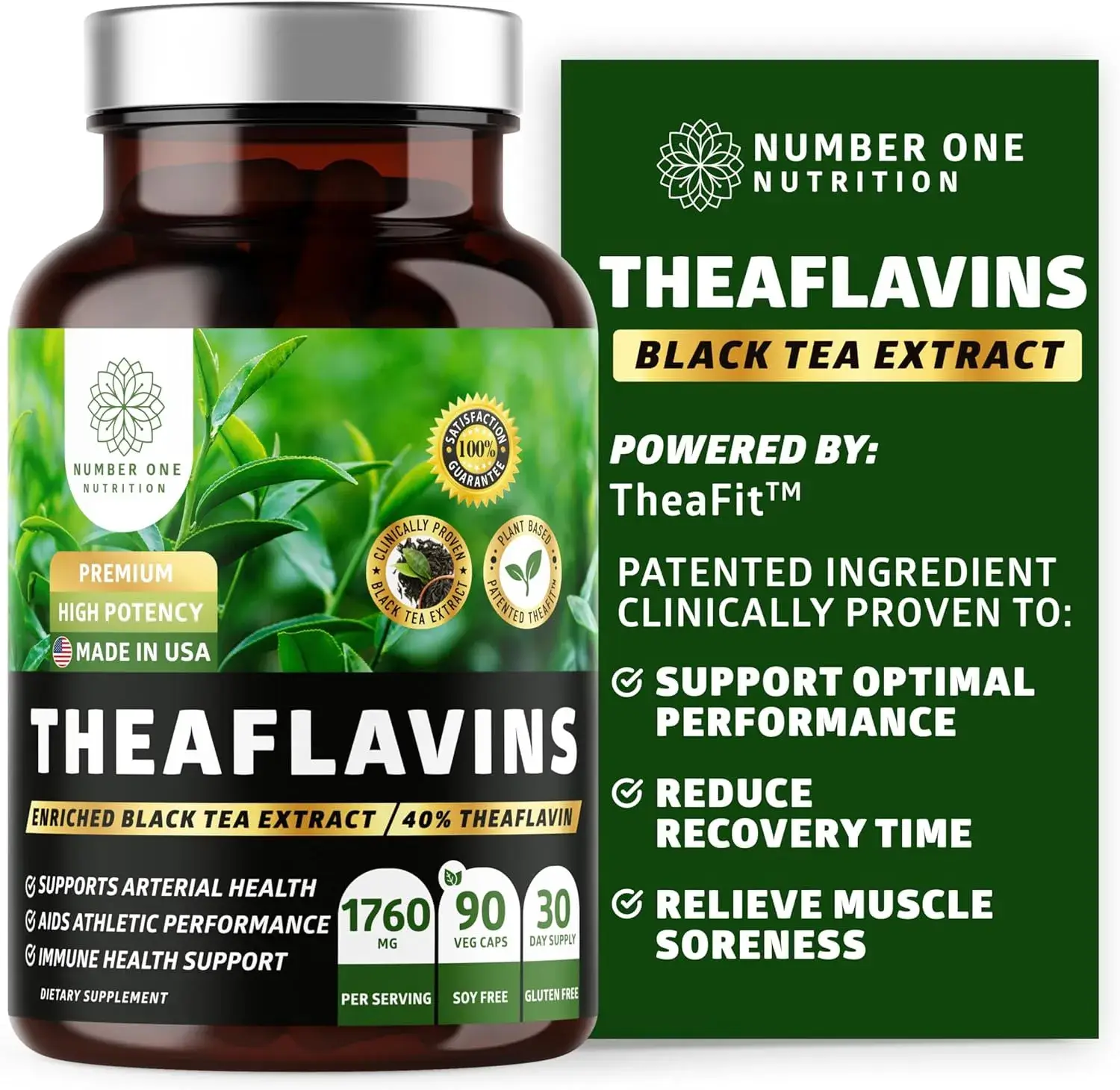Table of Contents
You know, that bright yellow spice in your kitchen cabinet? Turns out, it’s more than just for curries. People have been using turmeric for ages as a natural remedy, and now science is catching up to see why. Making turmeric tea is super simple, and it’s a nice way to get some of its good stuff without a big fuss. Let’s talk about what makes this golden drink so special and why turmeric tea is good for what seems like a lot of things.
Key Takeaways
- Turmeric tea is a caffeine-free drink made from turmeric root, known for its earthy flavor and vibrant color.
- The main active compound, curcumin, gives turmeric tea its anti-inflammatory and antioxidant properties.
- Drinking turmeric tea may help reduce inflammation, support the immune system, and aid in weight management.
- It can also contribute to better sleep, support heart health, and potentially play a role in preventing certain diseases.
- While research on turmeric tea specifically is ongoing, its components show promise for overall wellness.
Understanding Turmeric Tea’s Core Components
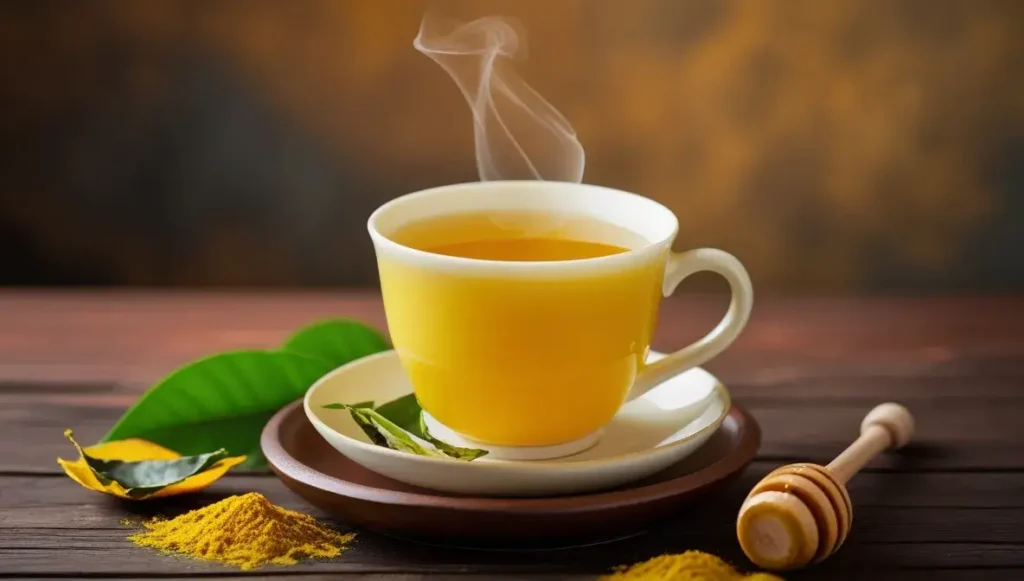
What is Turmeric Tea?
Turmeric tea is basically a warm drink made from the turmeric root, which is that bright yellow spice you probably have in your kitchen. It’s naturally caffeine-free, which is a nice bonus. People often say it tastes a bit like ginger, which makes sense because they’re related. The main thing that gives turmeric its color and a lot of its reputation is a compound called curcumin.
Making it is pretty simple. You just steep dried or fresh turmeric, or even ground turmeric, in hot water. The tea usually comes out a vibrant golden-yellow color. The taste is often described as earthy, a little bitter, but with a hint of sweetness and a tiny spicy kick. It’s a pretty straightforward way to get some of the good stuff from turmeric.
The Role of Curcuminoids
Turmeric has been used for ages in traditional medicine, and now scientists are looking into why. A big part of the answer lies in compounds called curcuminoids. These are a type of antioxidant found in turmeric. The most well-known and studied of these is curcumin itself. While most research uses concentrated turmeric or curcumin supplements, and the amount in tea might be less, these curcuminoids are thought to be responsible for many of turmeric’s potential health perks.
It’s important to know that our bodies don’t always absorb curcumin easily. This means that even if you drink turmeric tea regularly, the amount your body actually uses might be quite small compared to what’s in a supplement. Still, researchers are exploring ways to make curcumin more available to the body.
Bioactive Compounds in Turmeric
Beyond curcuminoids, turmeric is packed with other beneficial substances. These are called bioactive compounds, and they’re basically nutrients that can help promote health. Think of them as the plant’s natural helpers.
Here’s a quick look at what you might find in turmeric, which can also be present in your tea:
- Curcuminoids: As we mentioned, these include curcumin, known for its antioxidant and anti-inflammatory properties.
- Volatile Oils: Turmeric contains various essential oils that contribute to its aroma and may have their own health effects.
- Minerals: Turmeric provides small amounts of important minerals like manganese, iron, and copper. For instance, just one teaspoon of dried turmeric (about 3 grams) can offer about 26% of your daily manganese needs.
While the exact amounts can vary, these compounds work together to make turmeric a unique spice. The way you prepare your tea, and if you add other ingredients, can also influence the final mix of beneficial compounds you consume.
Turmeric Tea’s Anti-Inflammatory Power
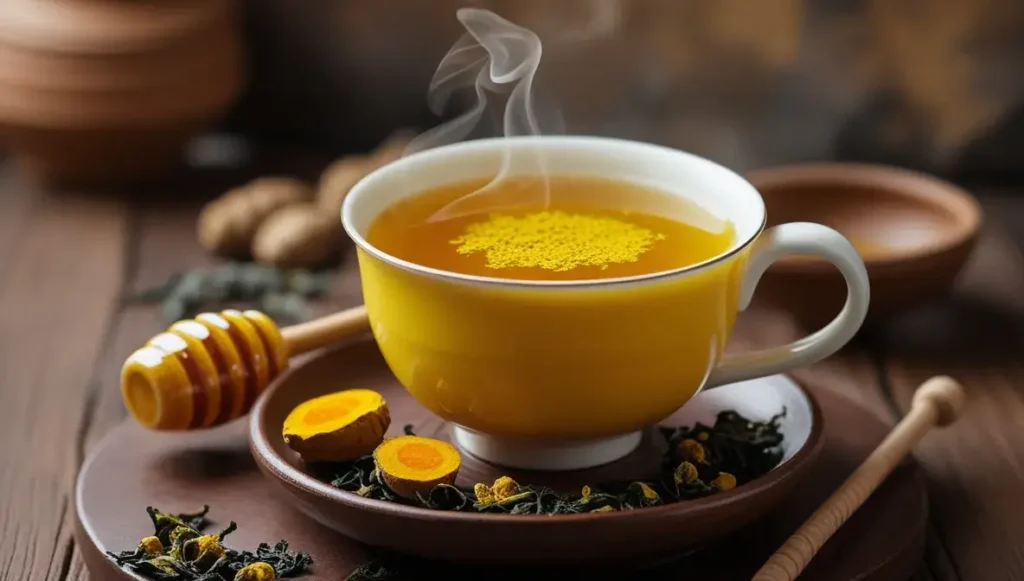
When we talk about the benefits of turmeric tea, its ability to combat inflammation really stands out. Inflammation is a normal bodily response, sort of like your body’s alarm system against injury or infection. But sometimes, this system can get stuck in overdrive, leading to chronic inflammation. This long-term inflammation is linked to a bunch of health issues, from heart problems to certain types of cancer.
How Turmeric Fights Inflammation
The star player in turmeric’s anti-inflammatory action is a compound called curcumin. It’s what gives turmeric its vibrant yellow color. Curcumin works by targeting specific pathways in the body that contribute to inflammation. Think of it as a natural way to help calm down those overactive inflammatory responses. This is why turmeric tea for inflammation is gaining so much attention.
Relief for Chronic Conditions
For people dealing with chronic inflammatory conditions, turmeric tea might offer some comfort. While most studies use concentrated turmeric supplements, the curcumin present in tea can still contribute to managing symptoms. It’s believed that regular consumption could help ease the discomfort associated with conditions like arthritis or inflammatory bowel diseases. It’s not a cure, but it can be a supportive part of a wellness routine.
Reducing Joint Pain and Stiffness
One of the most commonly reported uses for turmeric herbal tea is its effect on joint health. The anti-inflammatory properties of turmeric can be particularly helpful for reducing joint pain and stiffness. Many find that sipping on this warm, golden beverage helps them move a bit more freely. It’s a gentle, natural approach to supporting your joints, making everyday activities feel a little easier. The healing properties of turmeric infusion are truly remarkable when it comes to this aspect.
👉 Discover the premium turmeric tea with powerful proven benefits 👈
Boosting Your Body’s Defenses with Turmeric Tea
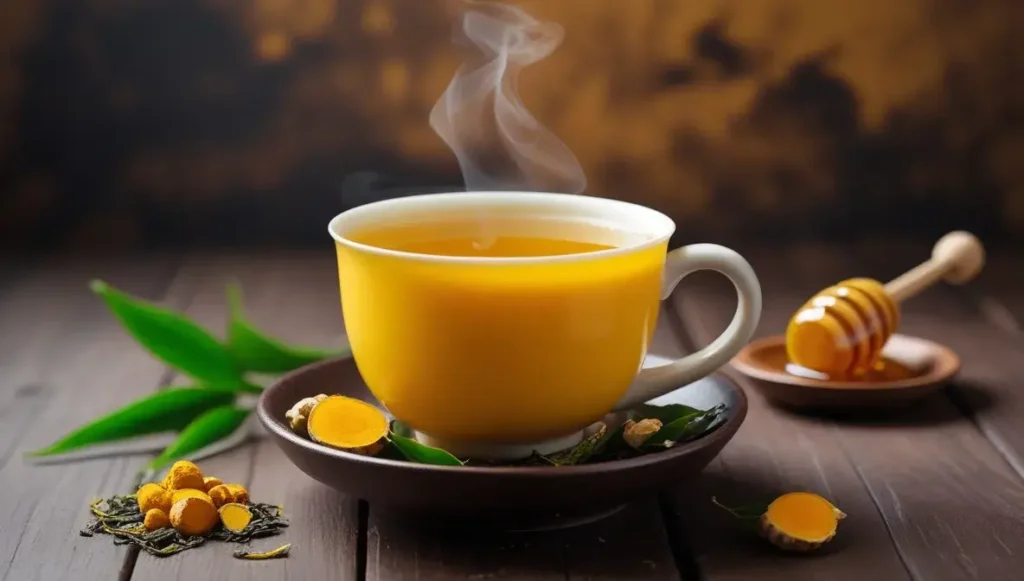
When you think about fortifying your body’s natural defenses, you might not immediately consider a warm cup of tea. But turmeric tea, a vibrant beverage made from the turmeric root, offers a surprising array of benefits for your immune system. It’s one of those simple, natural remedies with turmeric that can make a real difference.
Enhancing Immune Function
Turmeric contains a powerful compound called curcumin, which is believed to play a significant role in how our immune system works. Think of it as a helpful assistant, regulating and supporting the various cells that keep us healthy. While research is ongoing, studies suggest that curcumin can help improve how immune cells function, making them more effective at their jobs. This means your body might be better prepared to handle whatever comes its way.
Antibacterial and Antiviral Properties
Beyond just general support, turmeric itself has properties that can directly combat certain unwelcome invaders. Curcumin is known to possess antibacterial and antiviral qualities. This doesn’t mean it’s a magic bullet against every illness, but incorporating turmeric tea into your routine could offer an extra layer of defense. It’s a gentle way to support your body’s natural ability to fight off common germs.
Antioxidant Support for Immunity
Oxidative stress, caused by unstable molecules called free radicals, can weaken your body over time, including your immune system. Turmeric is packed with antioxidants, and curcumin is the star player here. These antioxidants help neutralize those harmful free radicals, protecting your cells from damage. By reducing this cellular stress, turmeric tea contributes to a more robust and resilient immune response. It’s a key part of the benefits of drinking turmeric tea that many people appreciate.
The natural compounds in turmeric work together to support your body’s internal defense systems. It’s not about replacing medical treatment, but about adding a supportive, plant-based element to your wellness routine.
Here’s a quick look at how turmeric supports your defenses:
- Curcumin’s Role: Acts as a regulator for immune cells.
- Antimicrobial Action: Possesses natural antibacterial and antiviral properties.
- Antioxidant Power: Fights off damaging free radicals that can weaken immunity.
- Anti-inflammatory Effects: Helps reduce inflammation, which can otherwise tax the immune system.
Turmeric Tea for Weight Management Support
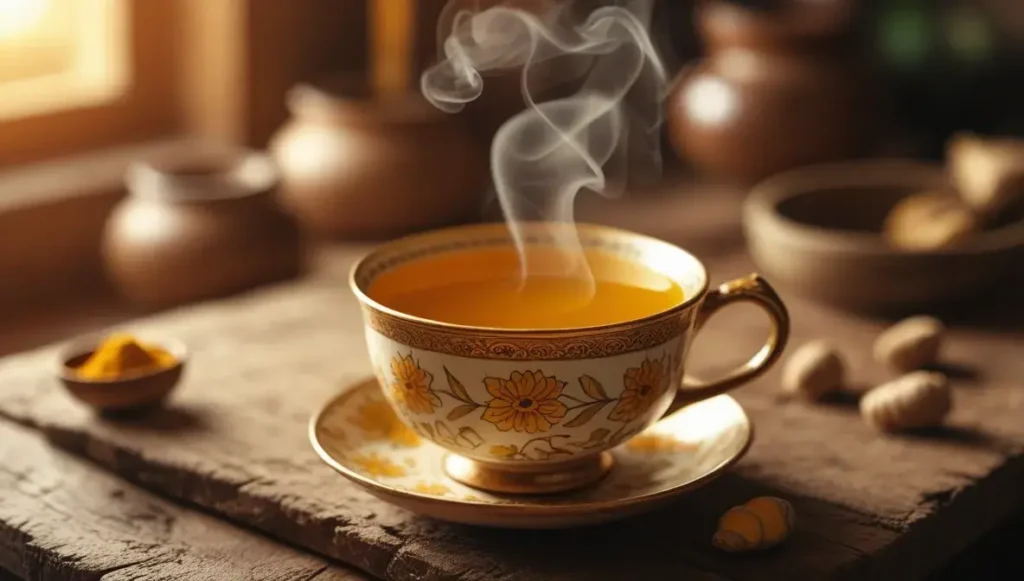
When people talk about turmeric tea wellness uses, weight management often comes up. And for good reason! While it’s not a magic bullet, incorporating turmeric tea into your routine can offer some helpful support if you’re trying to manage your weight. It’s one of those what is turmeric tea used for questions that has a pretty interesting answer.
Promoting Satiety with Dietary Fiber
Turmeric itself contains dietary fiber. This fiber is great because it helps you feel fuller for longer. When you feel satisfied after a meal or snack, you’re less likely to reach for more food or unhealthy options. Think of it as a gentle nudge towards eating less without feeling deprived. A warm cup of turmeric tea can be a comforting way to end a meal, potentially curbing those post-meal cravings.
Metabolism and Calorie Burning
Some research suggests that turmeric, specifically its active compound curcumin, might give your metabolism a little boost. A faster metabolism means your body burns more calories, even when you’re at rest. While the amount of curcumin in tea might be less than in supplements, consistent consumption could contribute to your body’s natural calorie-burning processes. Plus, turmeric tea is naturally low in calories itself. A typical cup, without added sugar or milk, usually falls between 10 to 30 calories. This makes it a smart swap for higher-calorie beverages like sodas or juices, directly cutting down your daily calorie intake.
Balancing Hormones for Appetite Control
Another interesting aspect of turmeric tea is its potential to help balance hormones that influence appetite. When your hormones are out of whack, you might find yourself battling intense cravings, especially for sugary or high-fat foods. By helping to regulate these hormones, turmeric tea may reduce those disruptive cravings and binge eating tendencies. This can lead to more balanced eating habits and make it easier to stick to a healthy eating plan. It’s a subtle but significant way it can support your weight management journey.
👉 Taste the ultimate turmeric tea for superior daily wellness boost 👈
Turmeric Tea for Restful Evenings

Aids in Better Sleep Quality
If you’re someone who tosses and turns at night, a warm cup of turmeric tea might just be your new best friend. While the science is still catching up, many people find that the ritual of sipping a warm, caffeine-free beverage before bed helps them wind down. Some research suggests that turmeric’s anti-inflammatory and antioxidant properties could play a role in improving mood, which in turn might make it easier to fall asleep. Think of it as a gentle nudge towards dreamland.
Calming Effects for Relaxation
Beyond just sleep, turmeric tea can contribute to a general sense of calm. The process of preparing and slowly enjoying a cup can be a mindful practice in itself. It’s a moment to pause, breathe, and let go of the day’s stresses. This simple act of self-care, combined with the natural properties of turmeric, can create a peaceful transition into a more relaxed state.
Caffeine-Free Evening Beverage
One of the biggest advantages of turmeric tea is that it’s naturally caffeine-free. This means you can enjoy it any time of day, but it’s especially beneficial in the evening. Unlike coffee or black tea, it won’t interfere with your natural sleep cycle or leave you feeling jittery. It’s a comforting drink that supports your body’s natural winding-down process, making it a perfect addition to your bedtime routine. You can even pair it with other calming, caffeine-free options like chamomile for an extra soothing blend.
Supporting Cardiovascular Health

Reducing Oxidative Stress
Oxidative stress is a big player in heart problems. It happens when you have too many unstable molecules, called free radicals, floating around in your body. These guys can really damage your cells, including those in your heart and blood vessels. Turmeric, thanks to its star compound curcumin, is packed with antioxidants. These antioxidants act like little bodyguards, neutralizing those free radicals before they can cause harm. Think of it as giving your heart a protective shield against daily wear and tear. This can help keep your arteries more flexible and less likely to get clogged up over time.
Improving Cholesterol Levels
Keeping your cholesterol in check is pretty important for a healthy heart. High levels of LDL, often called the ‘bad’ cholesterol, can build up in your arteries, making it harder for blood to flow. Some research suggests that turmeric might help lower these LDL levels. At the same time, it could potentially give a little boost to your HDL, the ‘good’ cholesterol, which actually helps clear out the bad stuff. It’s not a magic bullet, of course, but as part of a balanced diet, it could be a helpful addition.
Promoting Healthy Blood Pressure
Blood pressure is another key factor for heart health. When your blood pressure is too high, it puts extra strain on your heart and blood vessels. There’s some evidence that turmeric can help with this. It seems to work by helping your blood vessels relax and widen a bit, which allows blood to flow more smoothly. This relaxation can lead to lower blood pressure readings. Over time, this could mean less stress on your entire cardiovascular system, making it work more efficiently.
👉 Experience our exclusive turmeric tea crafted for elite health 👈
Turmeric Tea’s Potential in Disease Prevention
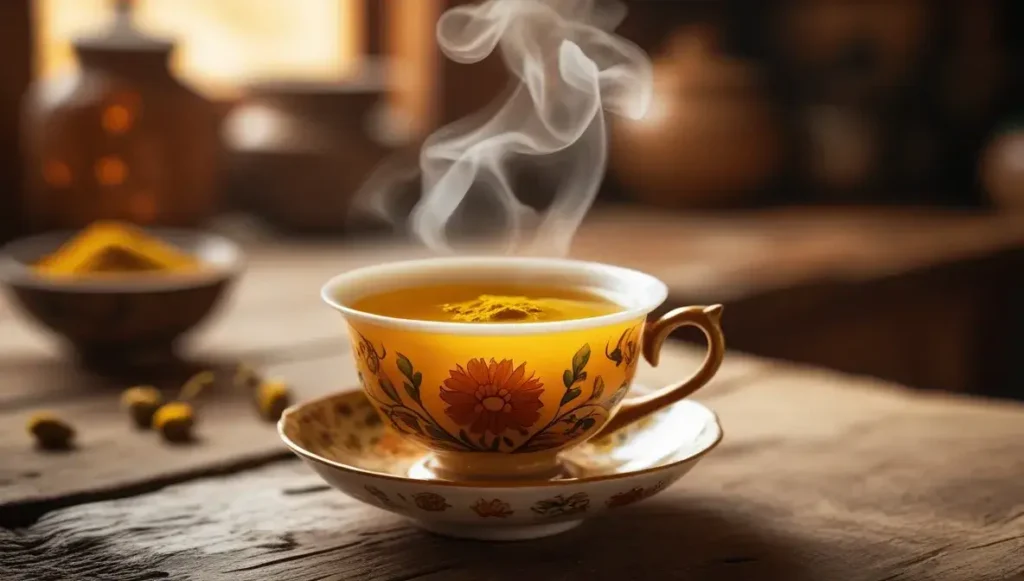
Turmeric tea, with its vibrant color and earthy flavor, isn’t just a comforting drink; it holds some interesting possibilities when it comes to helping our bodies ward off certain health issues. The real star here is curcumin, a compound found in turmeric that’s been studied for its protective qualities. While most research uses concentrated turmeric supplements, enjoying a regular cup of turmeric tea can still contribute to your overall well-being and potentially offer some defense against cellular damage.
Antioxidant Properties Against Cell Damage
Think of antioxidants as tiny protectors for your cells. Turmeric is packed with these, particularly curcuminoids. These compounds work by neutralizing unstable molecules called free radicals, which can cause damage to your cells over time. This cellular damage is linked to aging and various diseases. By drinking turmeric tea, you’re giving your body a little extra help in fighting off this oxidative stress. It’s one of the key health advantages of turmeric tea that people are talking about.
Inhibiting Tumor Growth
Some laboratory studies have looked into how curcumin might affect cancer cells. The findings suggest that curcumin could potentially play a role in slowing down the growth of tumors and even encouraging cancer cells to self-destruct. While this research is still in its early stages and mostly done outside the human body, it points to turmeric tea as a drink with potential benefits for those concerned about cancer prevention. It’s definitely one of the more talked-about uses for turmeric root drink.
Reducing Risk of Cancer Cell Growth
Building on the previous point, the antioxidant and anti-inflammatory actions of curcumin are thought to be the main reasons behind its potential cancer-fighting properties. Chronic inflammation and oxidative stress are known factors that can contribute to the development of cancer. By helping to manage these, turmeric tea might offer a way to lower the risk of certain cancers developing. These turmeric tea health advantages are a big reason why many people are adding it to their daily routine. It’s a simple way to support your body’s natural defenses, and there are many reasons to drink turmeric tea for long-term health.
Conclusion: Turmeric Tea Is Good for What?
So, there you have it. Turmeric tea is more than just a pretty golden drink; it’s a simple way to bring a bit of natural goodness into your daily routine. While it’s not a magic cure-all, enjoying a warm cup can be a comforting ritual that might just help with things like inflammation or getting a better night’s sleep. Remember to chat with your doctor if you’re thinking about supplements or have any health concerns. For now, why not give this earthy, caffeine-free brew a try? It’s a tasty way to explore a spice that’s been around for ages, and who knows, you might just find it becomes a favorite part of your day.
👉 Unlock revolutionary turmeric tea for best natural healing results 👈
Frequently Asked Questions
What exactly is turmeric tea?
Turmeric tea is a warm drink made from the turmeric root, which is like ginger and has a similar flavor. It’s naturally caffeine-free and has a bright yellow-orange color. People often describe its taste as earthy with a hint of sweetness and a little spice.
What makes turmeric tea healthy?
The main healthy part of turmeric is a compound called curcumin. Curcumin is known for its anti-inflammatory and antioxidant properties, which can help your body in many ways, like fighting off sickness and reducing swelling.
Can turmeric tea help with inflammation?
Yes, turmeric tea is believed to help reduce inflammation in the body. This is thanks to curcumin. It might help with conditions that cause swelling, like arthritis, and can also ease joint pain and stiffness.
Does turmeric tea help with sleep?
Since turmeric tea doesn’t have caffeine, it’s a good choice for winding down in the evening. Some people find its calming effects help them relax and potentially sleep better, though more research is needed.
Can I drink turmeric tea every day?
While turmeric is generally safe, there isn’t enough research to say for sure if drinking it every single day is okay for everyone. However, the amount of curcumin in tea is usually much less than in supplements, so it’s likely less risky.
Are there any side effects to drinking turmeric tea?
For most people, drinking turmeric tea is fine. However, some might experience an upset stomach or digestive issues if they drink too much. It’s always a good idea to talk to a doctor if you have health concerns or are taking medications.




